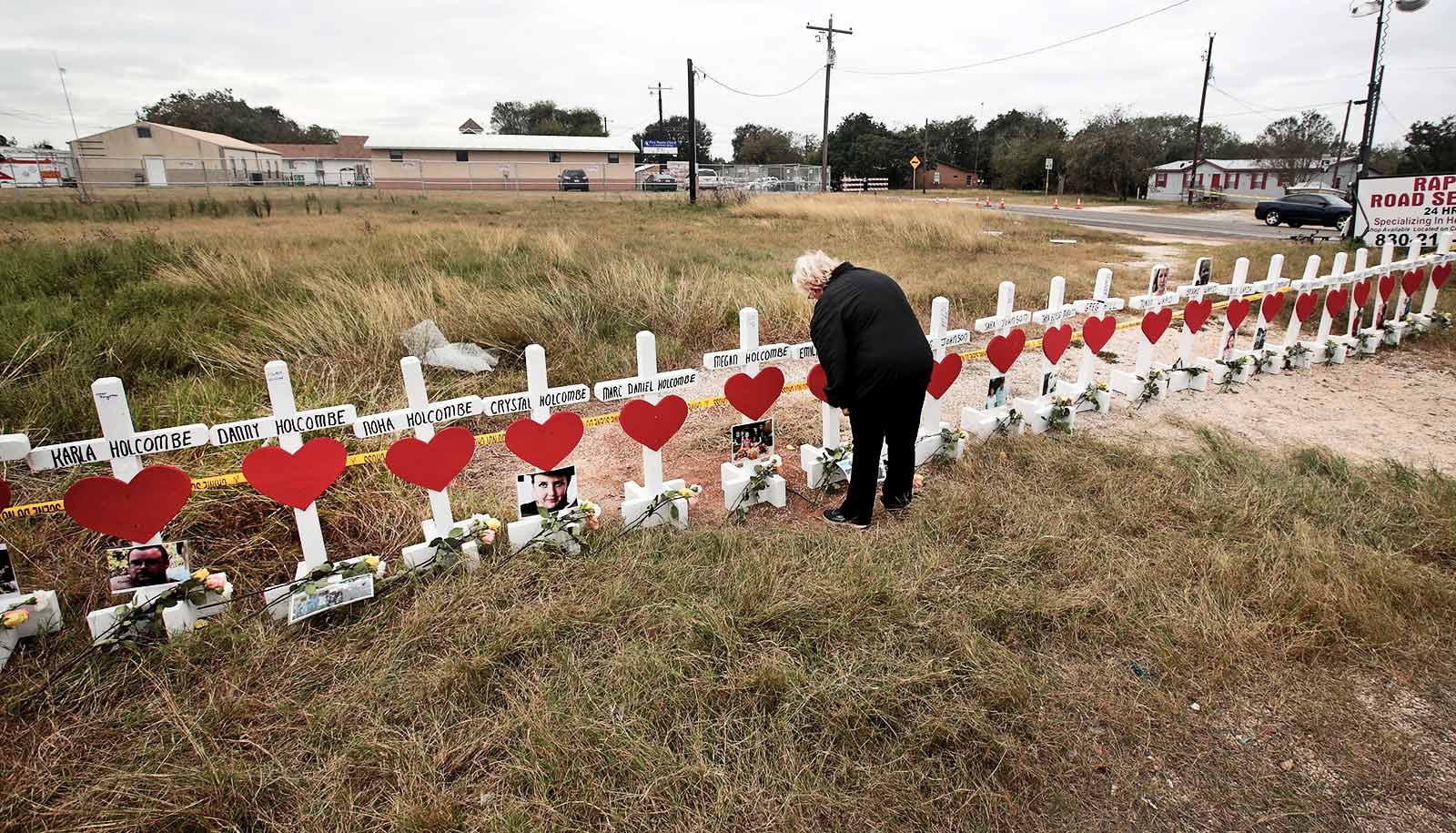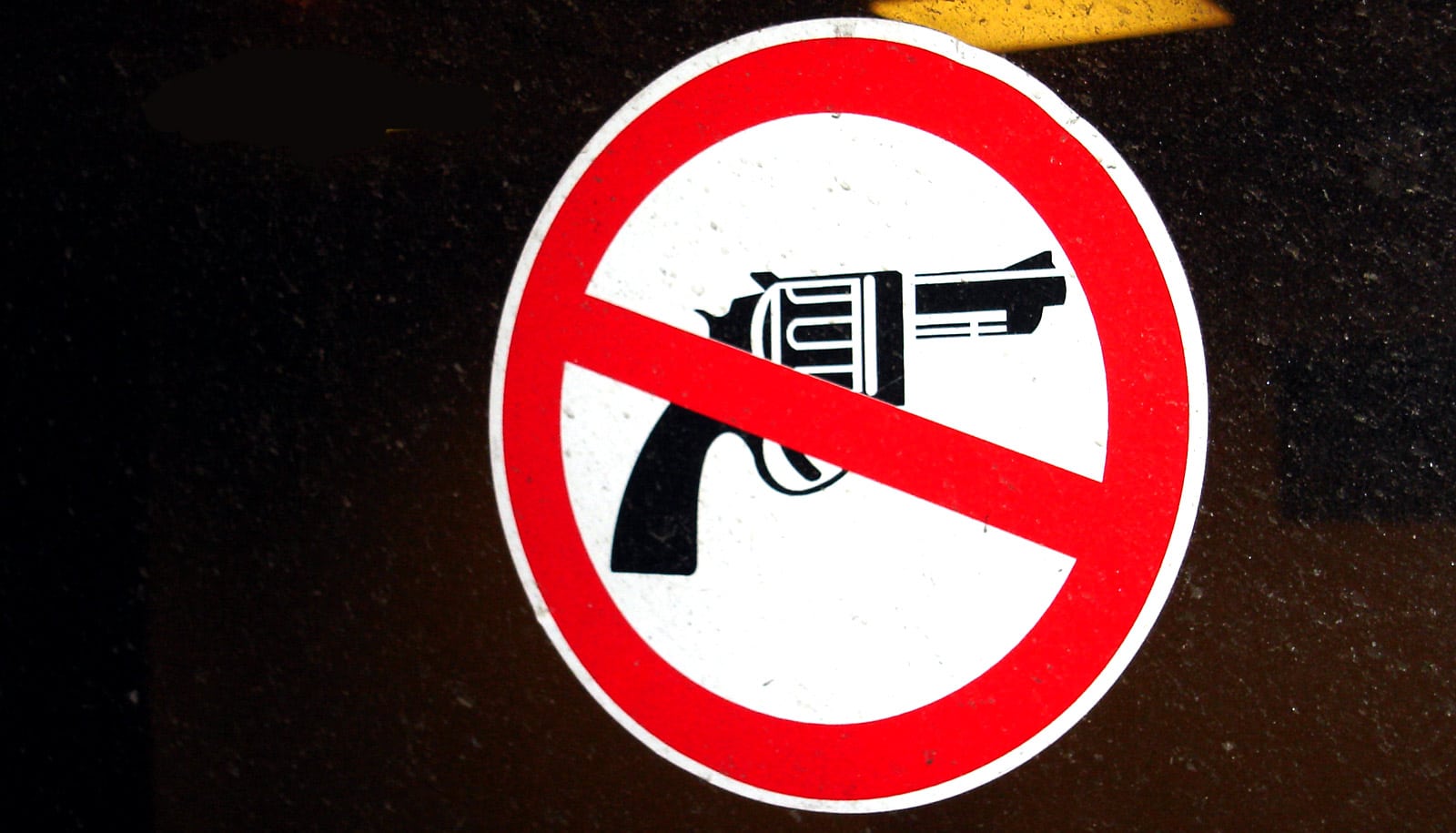A new study that measures the extent to which perpetrators of domestic violence also commit mass shootings suggests how firearm restrictions may prevent these tragedies.
Under federal law, people convicted of domestic violence misdemeanor crimes are prohibited from purchasing and possessing guns for the rest of their lives. But holes in the system may allow potential mass shooters to slip through the cracks.
The United States currently averages 20 mass shootings per year.
“We found that 38% of known mass shooters had a history of domestic violence, either known to the justice system or mentioned in the media,” says April Zeoli, associate professor of criminal justice at Michigan State University and lead author of a new paper in Criminology & Public Policy.
“People should determine, in their state, whether it may be possible for people convicted of domestic violence to obtain a firearm.”
“Very few of those who committed mass shootings seemed to have firearm restrictions due to domestic violence; the fact that some of them had those restrictions suggests that we are not actually preventing purchase or possession of a gun as well as we could or need to be.”
Some cases of domestic violence never result in firearm restrictions because law enforcement is never involved, because the cases are not referred to prosecutors, because filed charges don’t qualify for firearm restrictions, or because the case doesn’t meet a relationship requirement needed to apply gun restrictions.
“In more than 20 states, a person convicted of misdemeanor domestic violence against a dating partner will not be restricted from firearm access—you must have lived together, be married, or have a child together to qualify for the restriction,” Zeoli says.
Researchers looked at the nearly 90 mass shootings that took place between 2014 and 2017. Zeoli and coauthor Jennifer Paruk cross-checked four separate mass shooting databases—from Every Town for Gun Safety, USA Today, Gun Violence Archives, and Mother Jones—and then used publicly available criminal records to see what other criminal charges the shooters had against them.
“The public sees media reports of mass shootings happening in movie theaters, schools, nightclubs, and beyond—these are the ones that keep us all up at night,” Zeoli says. “But the majority of these mass shootings involved intimate and family member victims.”
The researchers pinpoint ways—called “exit points” in the paper—that firearm restrictions failed to prevent a shooter from buying a gun, which include purchases made through private sales and a failure to report gun disqualifications to the criminal background check system.
“In the case of the Sutherland Springs Baptist church shooting, the shooter did in fact qualify for a gun restriction under federal law because of domestic violence,” Zeoli says. “However, the conviction was in military court, and the military never sent the conviction records to the background check system; so, when he went to buy a gun, nothing showed up on his record.”
Zeoli says she hopes that the findings inspire both the public and lawmakers to learn about their states’ laws, as well as the exit points she and Paruk found that can lead to a gun landing in the hands of the wrong type of person.
“The image you get of mass shootings in the media isn’t always the full picture,” Zeoli says. “People should determine, in their state, whether it may be possible for people convicted of domestic violence to obtain a firearm. Many of those exit points can be closed through legislation and better implementation of the law.
“My feeling—and my hope—is that we’ll continue to see states work to implement restrictions to dangerous individuals from gaining access to guns and prevent gun violence from happening.”
Source: Michigan State University


